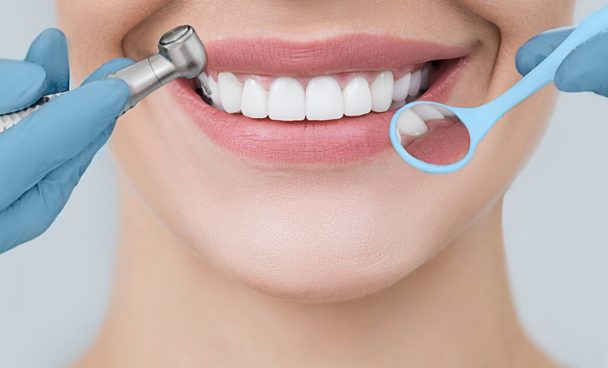Some types of drugs used in oncologic treatment may cause damage to the oral cavity, which naturally is already a propitious place for bacterial proliferation. For this reason, the presence of the dentist with the multidisciplinary team in oncology is extremely important: he or she acts to reduce or prevent oral complications that can impact the course of treatment, whether due to chemotherapy, radiotherapy, surgical approaches, or bone marrow transplant.
When should I consult a dentist during my oncological treatment?
It is recommended that the patient seeks odontologic care before the start of treatment, so that the professional may evaluate the oral health and eliminate possible infection spots.
But the caution does not end with this assessment: the dental surgeon’s follow-up may be extended throughout the treatment, if and when damage appears in the oral cavity is related to adverse reactions to the treatments used.
In addition, patients diagnosed with cancers in the head and neck areas require even more attention, with a careful and continuous dental follow-up by a specialized professional.
Strategies for successful preventive actions
The adequacy of the oral environment before the cancer treatment is the main preventive action performed by the dental surgeon. For it to be effective, some strategies can be employed during treatment, such as
- Opting for soft toothbrushes;
- Using carefully the waxed dental tape;
- Rinsing with non-alcoholic antiseptic if necessary; and
- Properly cleaning dentures.
Effects of cancer treatment on oral health
The most frequent inflammatory lesion in the oral mucosa resulting from oncologic treatment is mucositis, which can cause functional alterations such as pain, sleeping disorders, difficulty in oral hygiene, reduced food intake, and increased risk of local and systemic infections. All this impacts on quality of life.
Other common complications in the oral cavity resulting from cancer treatment are: oral candidiasis, herpes-virus and radiation caries, bone necrosis, trismus, and salivary and taste alterations.

